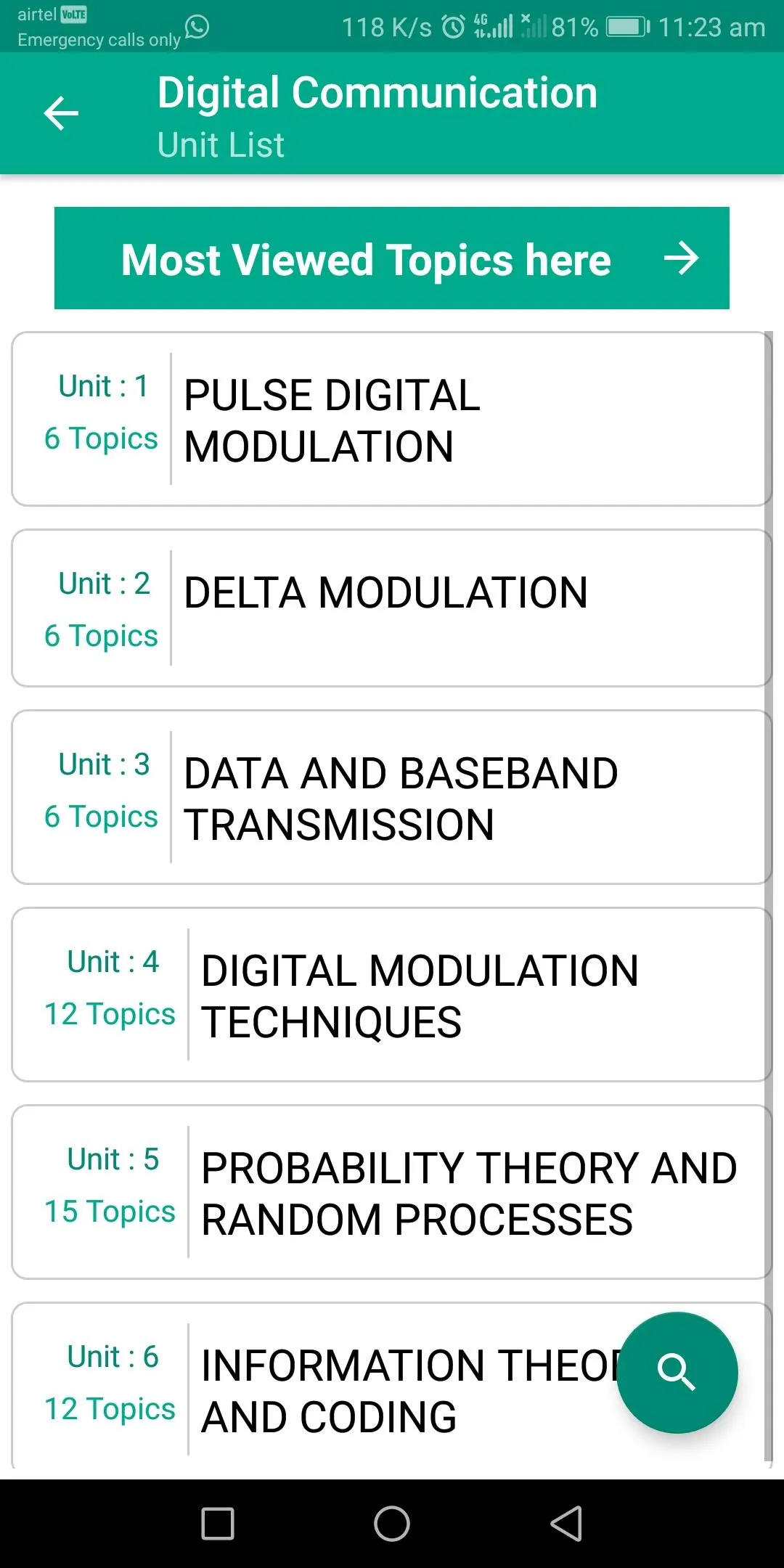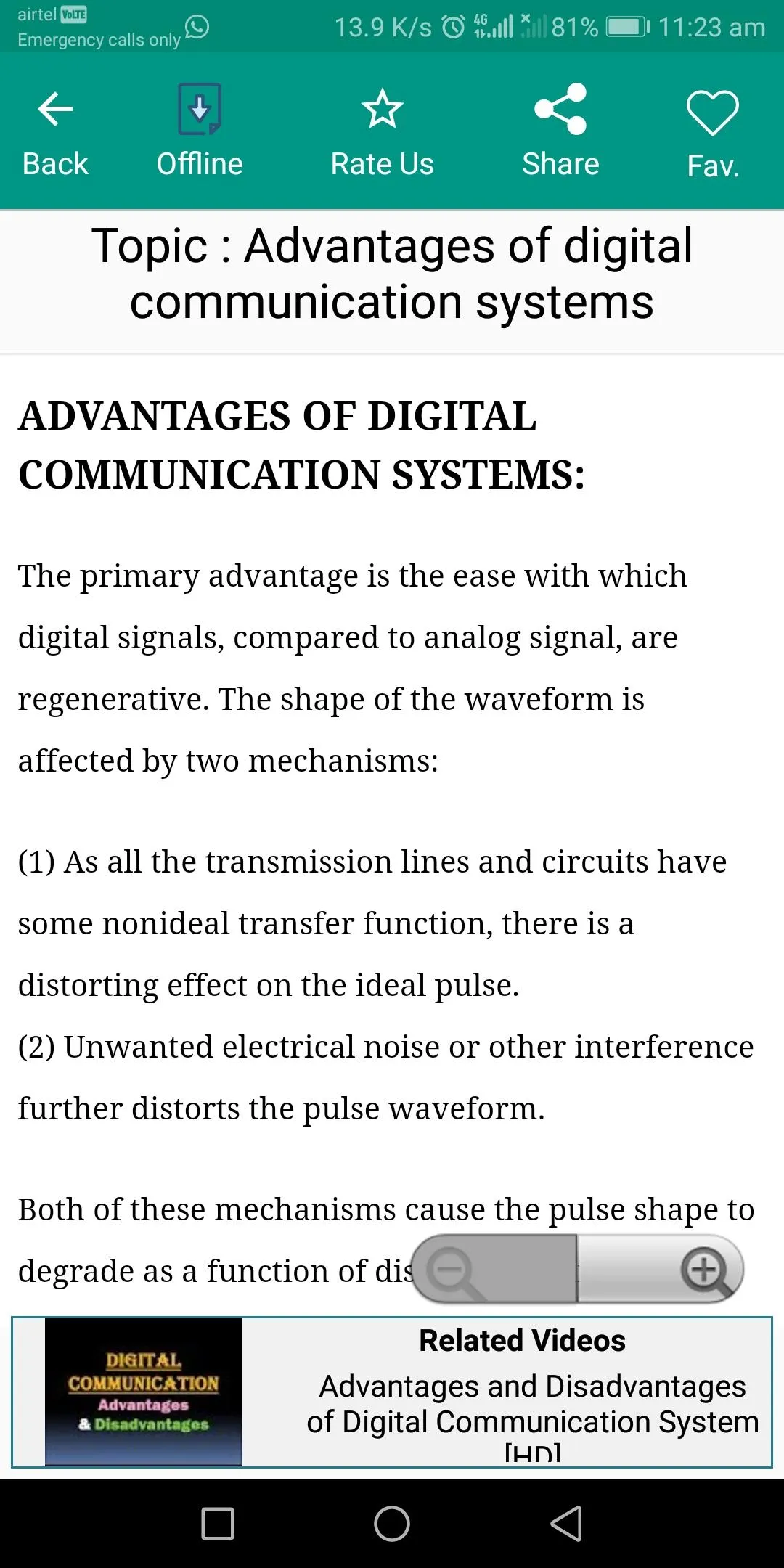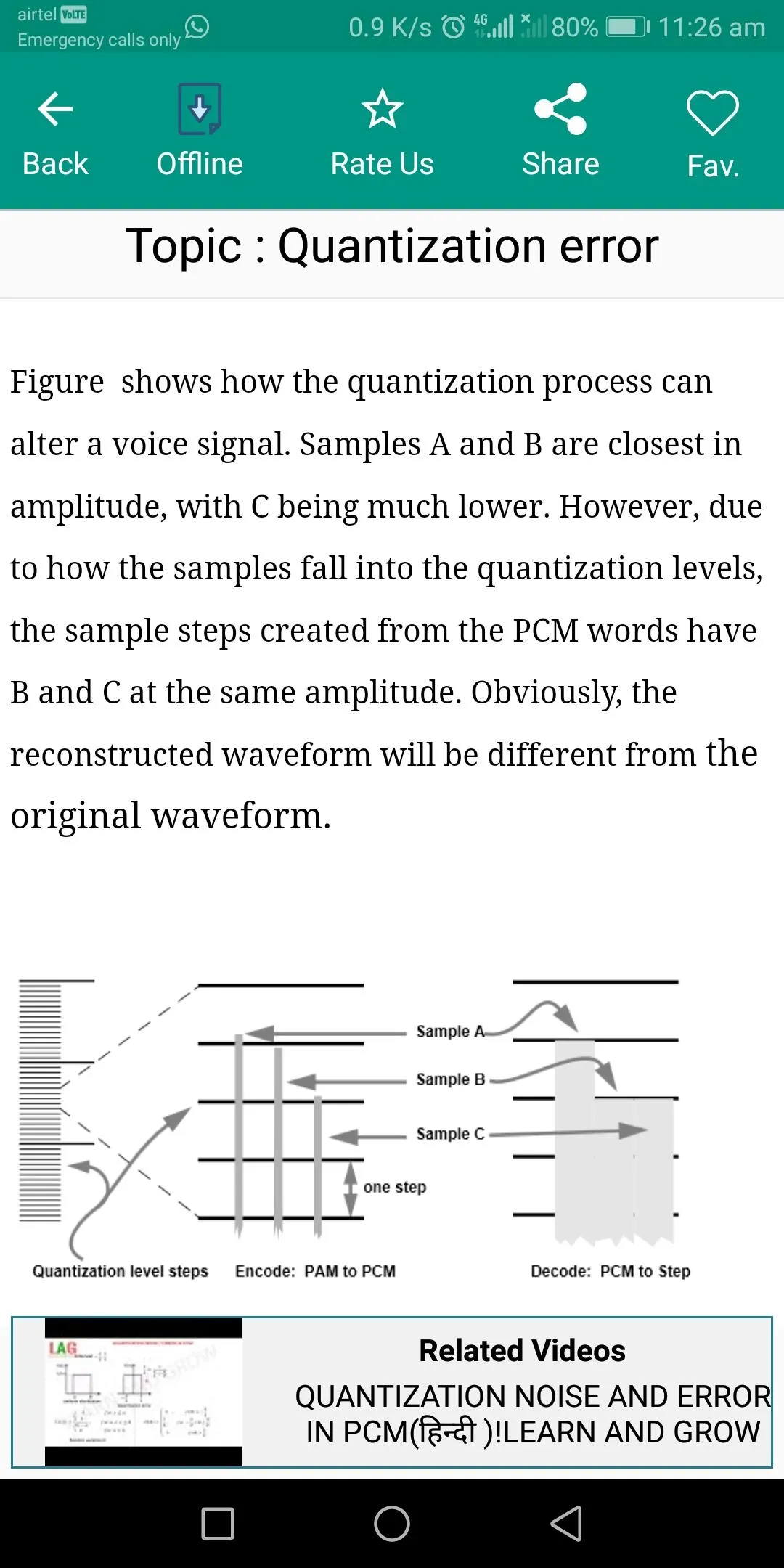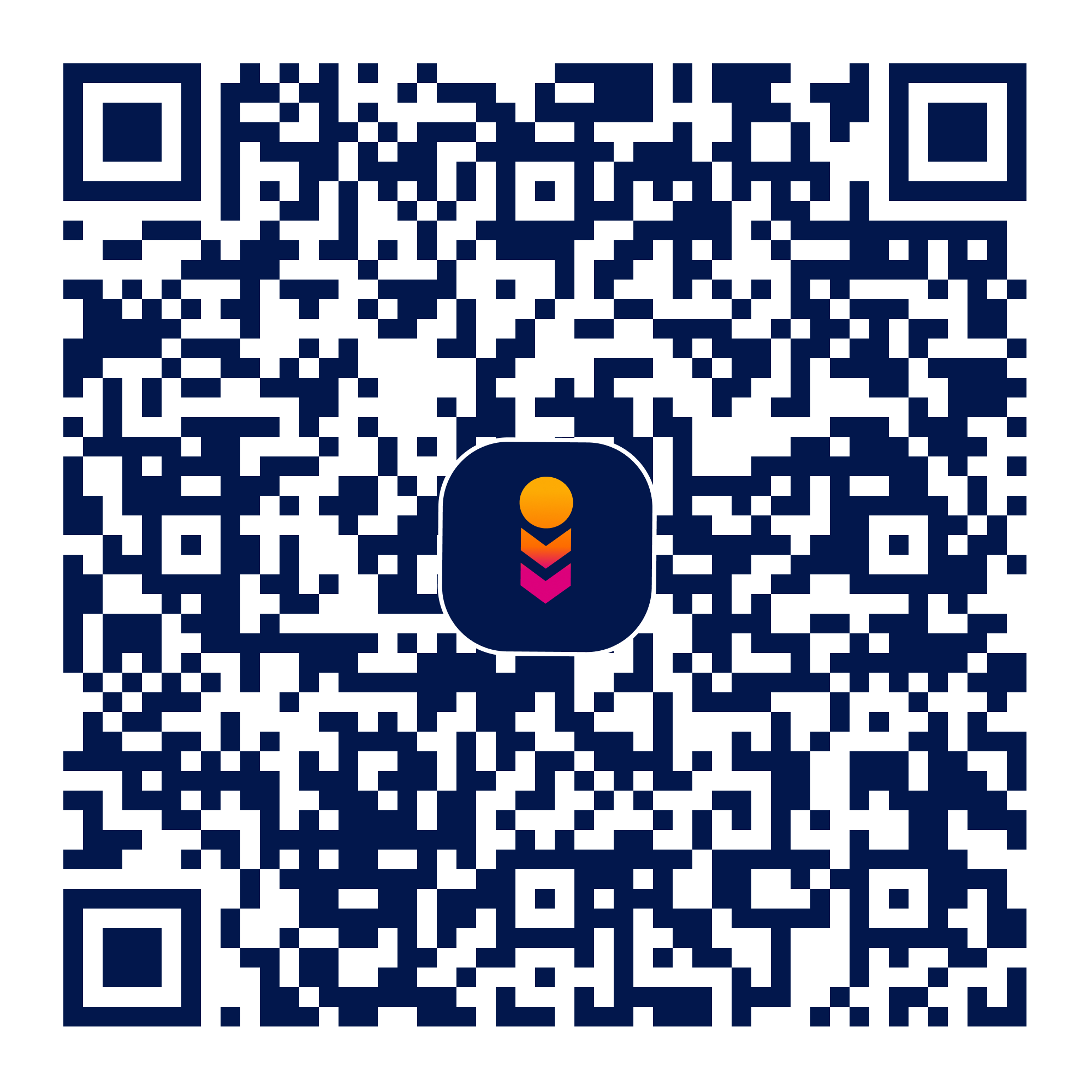Digital Communication
digital-communication
Verifed
4.09
Rating
6.94 MB
Download Size
11.03 MB
Install Size
Verifed
4.09
Rating
6.94 MB
Download Size
11.03 MB
Install Size
About App
This useful App lists 147 topics with detailed notes, diagrams, equations, formulas & course material, the topics are listed in 5 chapters. The app is must have for all the engineering science students & professionals.
The app provides quick revision and reference to the important topics like a detailed flash card notes, it makes it easy & useful for the student or a professional to cover the course syllabus quickly just before an exams or job interviews.
Also get the hottest international engineering & technology news on your app powered by Google news feeds. We have customised it so that you get regular updates on subject from international/national colleges, universities, research, industry, applications, engineering, tech, articles & innovation.
This is the best application to remain updated on your fav. subject.
Use this useful engineering app as your education tool, utility, tutorial, book, a reference guide for syllabus and explore study course material, aptitude tests & project work.
Track your learning, set reminders, edit, add favourite topics, share the topics on social media.
Some of the topics Covered in the app are:
1. Elements of Digital communication systems
2. Advantages of digital communication systems
3. Elements of PCM: Sampling, Quantization and coding
4. Quantization error
5. Compading in PCM systems
6. Differential PCM systems (DPCM)
7. Delta Modulation
8. Adaptive delta modulation
9. T1 carrier system
10. Comparison of PCM and DM systems
11. Noise in communication system
12. Noise consideration in PCM system
13. Line coding
14. Line codes; RZ and NRZ
15. Inter symbol interference
16. Pulse shaping
17. Nyquist Criterion
18. Raised cosine spectrum
19. Amplitude Shift Keying
20. Frequency Shift Keying
21. Coherent detection of ASK
22. Non-coherent ASK detector
23. Bandwidth and frequency spectrum of FSK
24. Non coherent FSK detector
25. Coherent FSK detector
26. FSK detection using PLL
27. Binary Phase Shift Keying
28. Binary Phase Shift Keying
29. Quadrature Phase Shift Keying
30. Quadrature Phase Shift Keying
31. Minimum Shift Keying
32. M-ary Modulation
33. Conditional Probability
34. Joint Probability
35. Statistical Independence
36. Continuous Random Variables
37. Discrete random variables
38. Gaussian Probability Density Function
39. Rayleigh Probability Density Function
40. Rician Probability Density Function
41. Mean and Variance
42. Random Process
43. Stationary and Ergodic process
44. Correlation Coefficient
45. Covariance
46. Random Binary Wave
47. Power Spectral Density
48. Information and Entropy
49. Conditional entropy and redundancy
50. Shanon fano Coding
51. Mutual Information
52. Information loss due to noise
53. Huffman coding
54. Variable length coding
55. Source coding
56. Hamming bound
57. The Generator matrix
58. Cyclic codes
59. Encoding of convolution codes
Each topic is complete with diagrams, equations and other forms of graphical representations for better learning and quick understanding.
Digital Communication is part of computer science, electronic & communication engineering education courses and technology degree programs of various universities.








Developer Infomation
Safety starts with understanding how developers collect and share your data. The developer provided this information and may update it over time.
Email :
